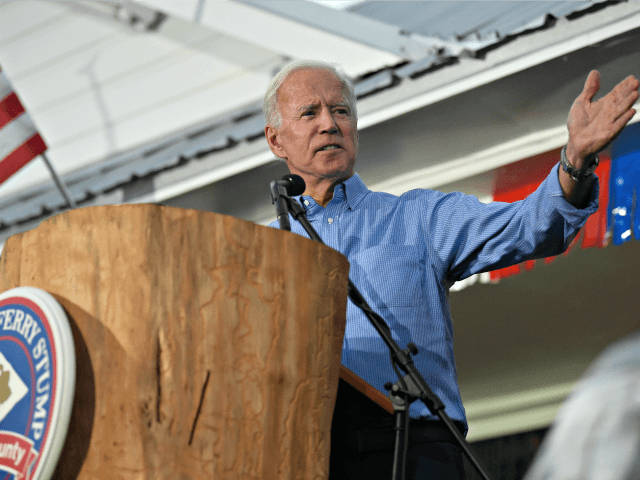Former Vice President Joe Biden once again paid homage to the late-Sen. Fritz Hollings, a reformed segregationist, on Monday at a fundraiser in South Carolina.
“Folks, I’m going to be brief because you’re standing and because old Fritz will come down from heaven and yank my neck back,” Biden told donors, according to The Post and Courier. “By the way, I owe South Carolina more than you can imagine.”
Hollings, who passed away earlier this year, was a longtime fixture in South Carolina politics, serving first as the state’s governor, then as U.S. Senator from 1966 to 2006. For the early portion of his career, Hollings was an opponent of integration, even riding such sentiments to the governorship in 1959 on a platform opposing the Brown v. Board of Education decision, which struck down segregation in public schools. Hollings kept that stance for the early portion of his term, but eventually changed course and supported integration.
It has been noted, though, that full desegregation of South Carolina’s public schools did not occur until after he left the governorship. His gubernatorial tenure was also when the Confederate flag was first raised over the South Carolina State Capitol.
In the Senate, Hollings cut a moderate to liberal profile by championing a national hunger policy and working to rein in the deficit. During his tenure, Hollings’ views on race appeared to grow and develop, as exhibited by his endorsement of Jesse Jackson in the 1988 presidential race.
The issue of race, however, continued to haunt the reformer segregationist as was evidenced in 1993 when Hollings stirred controversy by claiming African diplomats only attended international conferences so they could get a “good square meal” and not be forced into “eating each other.”
Biden, who has cited Hollings as a close friend and mentor over the years, claimed the South Carolinian’s life and views were heavily influenced by the times when eulogizing him in April.
This is not the first time Biden has invoked either Hollings or other segregationist Democrats on the campaign trail. In June the former vice president cited the late-Sens. James Eastland (D-MS) and Herman Talmdage (D-GA) at a fundraiser in New York City while touting his ability to form consensus in Congress.
“I was in a caucus with James O. Eastland,” Biden said at the time, with a mock Southern drawl. “He never called me boy, he always called me son.”
“Well guess what?” he continued. “At least there was some civility. We got things done. We didn’t agree on much of anything. We got things done. We got it finished. But today you look at the other side and you’re the enemy. Not the opposition, the enemy. We don’t talk to each other anymore.”
The remarks quickly sparked controversy, as both men were avowed segregationists who dedicated their careers to stopping the advancement of civil rights. Eastland, in particular, as the long-serving chairman of the Senate Judiciary Committee, attempted to derail the 1964 Civil Rights Act and Thurgood Marshall’s appointment to the Supreme Court.
Talmadge, on the other hand, was also a fierce opponent of civil rights and fought virulently against integration as both a member of congress and the governor of Georgia in the 1950s. As Sen. Kamala Harris (D-CA) highlighted at the first Democrat primary debate in June, both men were also Biden’s allies in his battle against busing to desegregate public schools.
The former vice president’s homage to Hollings came one day after he claimed to have committed his entire life to civil rights during an address at the 16th Street Baptist Church in Birmingham, Alabama.

COMMENTS
Please let us know if you're having issues with commenting.